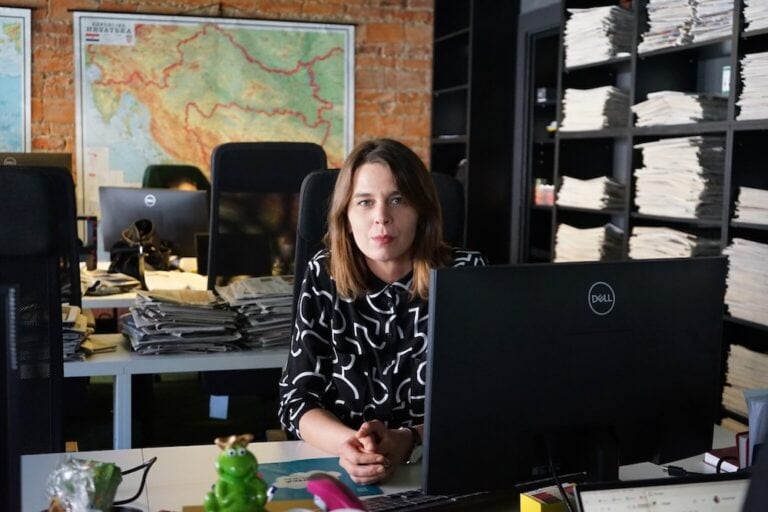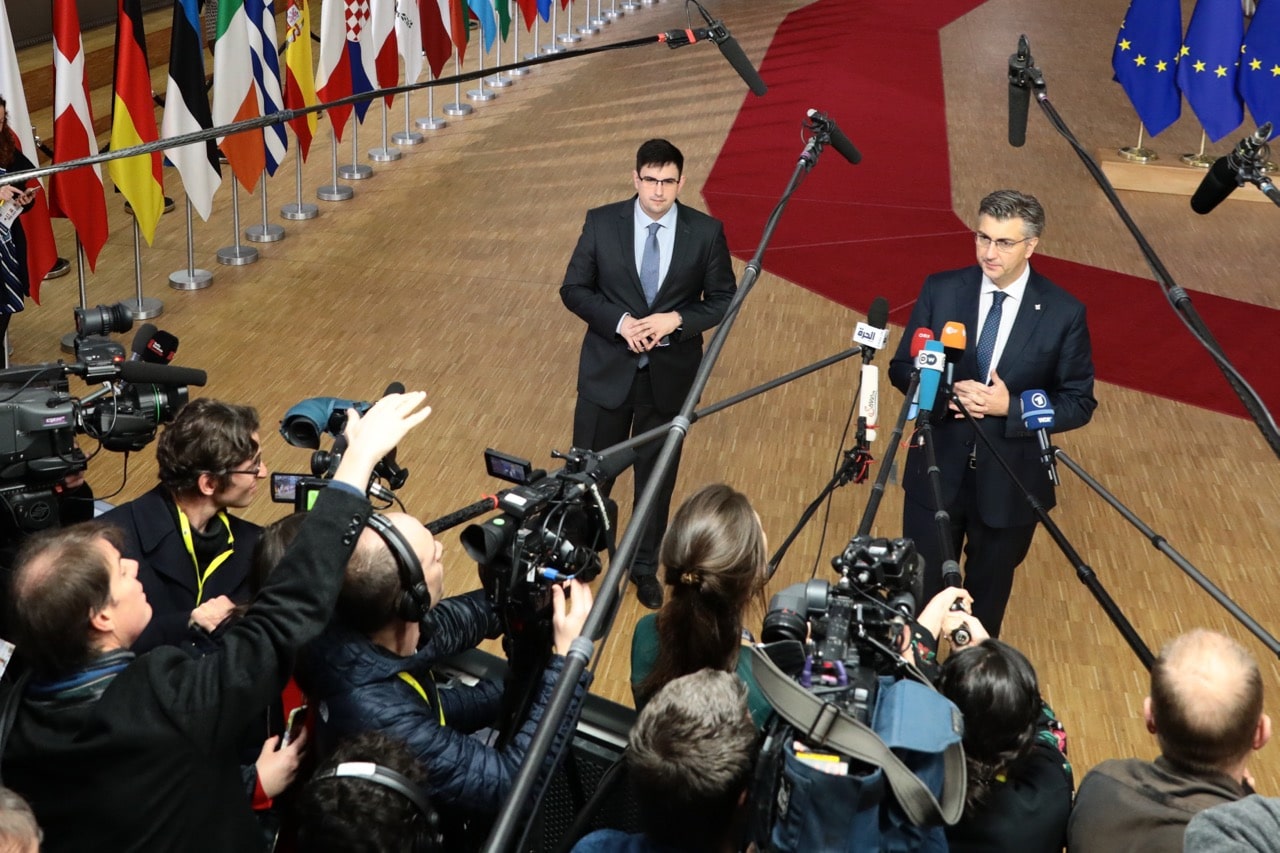(ARTICLE 19/IFEX) – ARTICLE 19 is greatly concerned about the case of Orlanda Obad, a journalist at the independent political daily “Jutarnji List”, who has been charged with violating Article 295 of the Croatian Penal Code. **Updates IFEX alerts of 16 July and 7 May 1999** According to ARTICLE 19’s information, the accusations followed the […]
(ARTICLE 19/IFEX) – ARTICLE 19 is greatly concerned about the case of
Orlanda Obad, a journalist at the independent political daily “Jutarnji
List”, who has been charged with violating Article 295 of the Croatian Penal
Code.
**Updates IFEX alerts of 16 July and 7 May 1999**
According to ARTICLE 19’s information, the accusations followed the 17
October 1999 publication of an article in “Jutarnji List”, in which Obad
revealed details of President Franjo Tudjman’s family’s financial holdings.
Her report released the fact that US$150,000 were held by the Zagrebacka
bank on behalf of the president’s wife, information which should have been
included in earlier earnings declarations. ARTICLE 19 believes that
embarrassment caused by the revelations is far outweighed by the public’s
interest in such information being disclosed. Indeed, such a belief is
embodied in Croatia’s September 1998 Law on Rights and Obligations of State
Employees, which requires public officials to release the amount of their
family assets.
The Obad case is particularly worrying as it appears that this is yet
another attempt by the Croatian government to prosecute journalists under
Article 295. Thus, ARTICLE 19 is also concerned about the impending trial of
journalist Ratko Boskovic, charged in connection with an article published
in the independent weekly “Globus” in 1995. ARTICLE 19 understands that the
article revealed bank documents and examined possible financial
improprieties of the Vktor Lenac shipyard in Rijeka.
ARTICLE 19 is also extremely disturbed by the lack of protection afforded to
Obad’s sources. It is ARTICLE 19’s understanding that the two employees who
admitted freely to the Zagrebacka bank that they had provided the
information were immediately dismissed. On 3 September 1998, the former
employees and Obad were called to testify before an investigative judge
regarding the case. They have filed a complaint against the charges, but are
expected to be tried this autumn and, should they be convicted, could all
face up to five years in prison.
This targeting of journalists and of their sources is all the more worrying
as it comes in the wake of the recent harassment of Ivo Pukanic and Robert
Bajrusi, respectively editor-in-chief and reporter at the independent weekly
newspaper “Nacional”, and of their alleged source, former justice minister
Miroslav Separovic. An article written by Robert Bajrusi, published in
“Nacional” on 2 June 1999, revealed that the Croatian secret services, the
SZUP, had fixed the result of the Croatian soccer championship. Ivo Pukanic
and Robert Bajrusi were questioned by the police about their source; their
homes as well as the offices of “Nacional” were searched; and Miroslav
Separovic was arrested and charged with disclosure of state secrets (see
IFEX alerts of 30 June and 17 June 1999).
ARTICLE 19 notes that Article 19 of the International Covenant on Civil and
Political Rights (ICCPR), to which Croatia is a state party, grants everyone
“freedom to seek, receive and impart information of all kinds.” Freedom of
expression and information are the guarantees of a healthy democracy. Under
international law, public bodies thus have a duty to disclose information
and the public has a corresponding right to receive it.
According to ARTICLE 19, the press plays a crucial role in upholding freedom
of information and in acting as a public watchdog. The freedom of
journalists to publish information and opinions concerning matters of public
interest is thus also protected by international law, such as the European
Convention on Human Rights (ECHR).
The ECHR, which Croatia has ratified, allows for restrictions on press
freedom only when specific personal or public interests are endangered.
Defamation and national security threats are thus narrowly defined offences.
They can occasionally be used to restrict press freedom only if it can be
demonstrated that such restrictions are “necessary in a democracy”, that is,
that there is no other way of protecting the interest at stake. The
prosecution of Obad and other journalists under Article 295 appears to be
motivated solely by a determination to prevent public disclosure of
information likely to cause embarrassment to Tudjman’s government. Such
motives do not constitute a legitimate reason, as defined by the ECHR, for
restricting media freedom.
Neither can the press effectively perform its function if journalists’
informants are tracked and penalised for disclosing information which is in
the public interest. Therefore, confidentiality and full legal protection
must be granted to the journalists’ sources if freedom of expression, of
information and of the press are to be guaranteed.
Recommended Action
Send appeals to the president:
Orlanda Obad and other journalists accused under Article 295 and to ensure
that press informants are given full legal protection
power
to end such regrettable practices and bring Croatia into line with current
international freedom of expression and information legislation
Appeals To
His Excellency Franjo Tudjman
President, Republic of Croatia
Zagreb, Republic of Croatia
Fax: +385 1 456 5208
E-mail: www-admin@president.hr
Please copy appeals to the source if possible.


